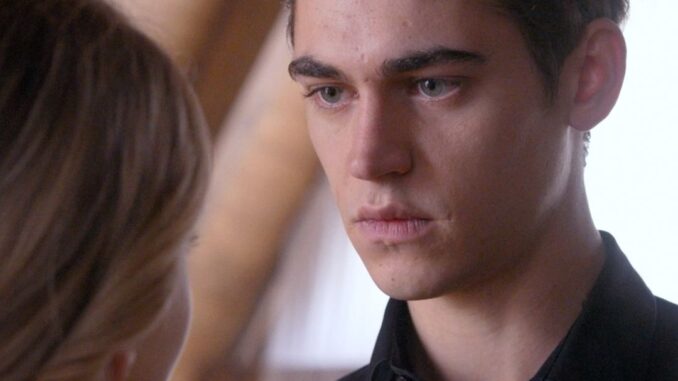
The Unfurling of a Final Chapter: Hero Fiennes-Tiffin and the Inevitable Sunset
A peculiar poignancy clings to farewells. They are moments suspended between what was and what will be, laden with a bittersweet melancholy that reminds us of a fundamental truth: all good things must come to an end. This universal principle, woven into the fabric of life, finds a vivid illustration in the recent news of Hero Fiennes-Tiffin bidding adieu to the After franchise. His departure isn’t merely the close of a film series; it’s a microcosm of life’s perpetual cycle of genesis, culmination, and eventual release, a necessary transition that allows for evolution and new beginnings.
For millions around the globe, the After franchise, born from Anna Todd’s fan-fiction phenomenon, wasn’t just a series of romance novels and films; it was an escape, a fervent passion, and for many, a defining pop culture moment. Central to its intoxicating allure was Hero Fiennes-Tiffin’s portrayal of Hardin Scott. With his brooding intensity, raw vulnerability, and undeniable charisma, Fiennes-Tiffin didn’t just play Hardin; he became him, breathing life into a character who embodied the tempestuous, often chaotic, nature of first love. The chemistry between him and Josephine Langford’s Tessa Young was electric, igniting screens and capturing hearts, turning a burgeoning book series into a cinematic sensation. The “good thing” here was multifaceted: the captivating narrative, the dedicated fanbase, the rise of its stars, and the collective experience of watching a beloved story unfold across multiple installments. Each premiere was an event, each new poster a thrill, each film a chapter in a shared journey.
Yet, even the most captivating sagas, like the most vivid sunsets, must eventually fade. Fiennes-Tiffin’s farewell signals the natural, if bittersweet, conclusion of this chapter. The story, as adapted from its source material, has been told. The character arcs, from tumultuous beginnings to a more mature, if still complex, resolution, have reached their cinematic zenith. For the actors, the crew, and the fans, this ending is not a failure, but a culmination. It’s the final note in a symphony, the last brushstroke on a sprawling canvas. There’s a quiet dignity in knowing when to draw the curtain, when to allow the credits to roll, preserving the magic of what was, rather than diluting it with unnecessary extensions. The final “cut” on set, the last lines delivered, the last costume hung – these moments, though tinged with sadness, mark the fulfillment of a creative journey.
Indeed, the phrase “all good things must come to an end” is not a lament, but a profound observation about the nature of existence. It speaks to the impermanence that defines our experiences, be they fleeting joys or enduring passions. Were good things to last indefinitely, they would lose their preciousness, their unique sparkle. The finite nature of a film franchise, a beloved television show, a season of life, or even a human relationship, imbues it with a deeper meaning. It teaches us to cherish the present, to appreciate the journey while it unfolds, because we inherently understand that its duration is not limitless. This inevitable conclusion allows for reflection, for the preservation of memories, and for the creation of a legacy that can be revisited and appreciated, much like a cherished book on a shelf.
Moreover, endings are not merely about cessation; they are about liberation. For Hero Fiennes-Tiffin, stepping away from Hardin Scott opens up a vast landscape of new possibilities. It allows him to shed the skin of a character that has defined a significant portion of his early career and venture into uncharted territories, to explore new roles, challenge his craft, and forge a new artistic path. For the franchise itself, the end allows its story to settle, its impact to be fully assessed, and its place in pop culture history to be cemented. And for the fans, while the immediate joy of anticipation might wane, it gives way to a nostalgic appreciation, the opportunity to revisit the films, and the excitement of following the actors into their next endeavors.
The farewell of Hero Fiennes-Tiffin from the After franchise serves as a resonant and illustrative echo of this timeless truth. It is a moment of closing a beloved book, acknowledging the beauty of the story it contained, and gently placing it back on the shelf. The melancholy is real, the nostalgia potent, but beneath it lies an acceptance, an understanding that the very finiteness of these good things is what makes them so profoundly impactful. As one chapter concludes, the blank page of the next awaits, reminding us that while good things must end, the promise of new good things, new stories, and new journeys is always just around the corner.
